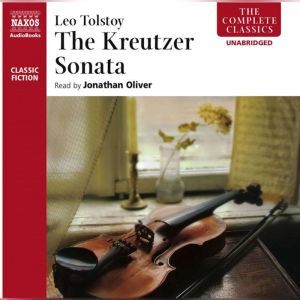
1 Rating(s)
List: $15.00
| Sale: $10.50
Club: $7.50
The Kreutzer Sonata
Author: Leo Tolstoy
Narrator: Jonathan Oliver
Unabridged: 3 hr 55 min
Format: Digital Audiobook Download
Publisher: Naxos
Published: 06/01/2010
Synopsis
One of Tolstoy’s most important shorter works, The Kreutzer Sonata presents a problematic view of the relationship between the sexes and promotes abstinence as the solution. Pozdnyshev jealously observes the intimacy that emerges between his wife and a violin player. Haunted by ‘The Kreutzer Sonata’ over which they bonded; it plays round and round in Pozdnyshev’s head driving him to distraction and to an unquenchable rage. The Kreutzer Sonata is a psychologically fascinating novella, offering interesting insights into the power play between the sexes.